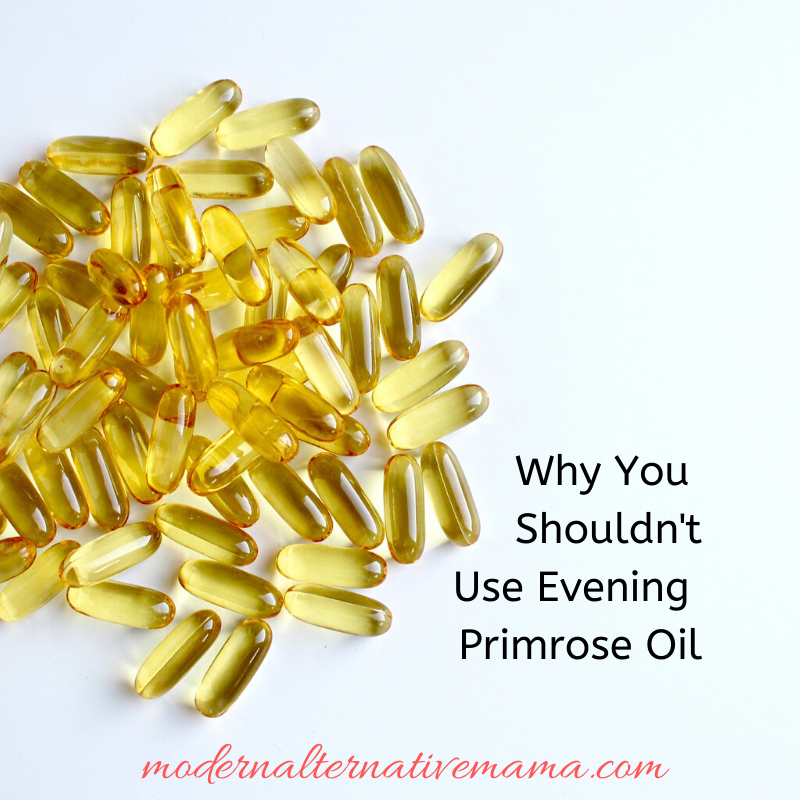
Do not use this product without medical advice if you are pregnant. Can Evening Primrose Oil Be Used During The Pregnancy.

The purpose of the present study was to evaluate the effects of evening primrose oil EvPO on the duration of pregnancy and labour.
Evening primrose oil and pregnancy. There isnt enough research to know for sure whether its safe to use evening primrose oil during pregnancy. Some research suggests taking evening primrose oil in pregnancy could lead to prolonged labor premature rupture of membranes and an increased need for labor induction hormones and vacuum extraction. One case study found that a baby born to a mom who took.
Can Evening Primrose Oil Be Used During The Pregnancy. Going by the pros and cons it is sensible to avoid evening primrose oil during pregnancy if possible. Remember it prepares the cervix which makes dilation easy.
It may not induce labour and will not be of much use until your body is ready to go into labour on its own. Instead of opting for self-medication make sure that you consult. Evening primrose oil or EPO has long been connected with pregnancy both as an aid in helping women become pregnant and as a way to induce labor and make childbirth more comfortable.
Evening primrose oil is thought to be one of the oldest medicinal plants related to pregnancy and childbirth and many natural health practitioners swear by it and tout its effectiveness. The purpose of the present study was to evaluate the effects of evening primrose oil EvPO on the duration of pregnancy and labour. The study was performed as a triple blind placebo controlled randomised clinical trial on nulliparous low-risk women with a certain gestational age of 40 weeks of pregnancy and a Bishop score of less than 4.
In the case group EvPO group EvPO capsules were. How Evening Primrose Oil Works. It contains prostaglandins which can help ripen the cervix.
You can also use evening primrose oil to massage the perineum regularly during the third trimester to reduce the risk of tearing during labor. What Evening Primrose Oil Does NOT Do. It does not induce labor.
Although it can ripen the cervix which can make for easier dilation and effacement once labor. Its probably best not to take evening primrose oil in pregnancy as we cant be sure its safe. There arent any proven safety issues with evening primrose oil.
However the British National Formulary which advises healthcare professionals about medicines says evening primrose oil should be used with caution in pregnancy. Evening primrose oil is widely used by many midwives to hasten cervical ripening in an effort to shorten labor and decrease the incidence of postdates pregnancies. Although its efficacy has been studied in the relief of symptoms of a number of medical conditions its use has not been well studied if at all for the purpose of cervical ripening.
Evening primrose oil may help to mitigate many of the early discomforts and complications associated with pregnancy. The National Institutes of Health reports that the oil can relieve mastalgia or breast pain which is a very common problem during the first trimester of pregnancy. In this episode I cover the evidence on evening primrose oil EPO for natural labor induction.
This oil is extracted from the seed of the evening primrose plant which grows wild in North America and some parts of Europe. Its a rich source of omega six essential fatty acids as well as other compounds which are thought to help ripen the cervix for labor. The safety of evening primrose oil during pregnancy depends on how far a woman is into her pregnancy.
Its usually considered safe to use during the first trimester but it should not be used unless specifically recommended by a gynaecologist. It gets less beneficial by the third trimester and should be avoided completely. Evening primrose oil may be safe for use during pregnancy and while breastfeeding but the evidence is not conclusive.
Evening primrose oil is generally well tolerated. The most common side effects are temporary gastrointestinal symptoms such as abdominal pain fullness or nausea. The use of evening primrose oil during pregnancy is not supported in the literature and should be avoided.
Medline Plus a website published by the US National Library of Medicine and the National Institutes of Health published an April 2012 article on EPO. Evening primrose oil may be unsafe for birth via cesarean delivery. The NIH state that evening primrose oil may increase the risk of bleeding in people who are.
Evening primrose oil is widely used by many midwives to hasten cervical ripening in an effort to shorten labor and decrease the incidence of postdates pregnancies. Although its efficacy has been studied in the relief of symptoms of a number of medical conditions its use has not been well studied if at all for the purpose of cervical ripening. Evening Primrose Oil Evening primrose oil borage oil and black currant seed oil produce seeds that contain gamma linolenic acid GLA.
A 6-month randomized double-blind placebo controlled trial was conducted with 56 menopausal women who reported having hot flashes three or more times a day. Evening primrose is considered likely unsafe to use during pregnancy. Do not use this product without medical advice if you are pregnant.
Taking evening primrose oil in the early stages of pregnancy generally is not advised. Different sources warn future moms of taking EPO before the 34-35th week of pregnancy. The reason for being cautious is that EPO may cause uterine contractions and therefore can cause labor to begin earlier.
Evening Primrose Oil and Pregnancy Another note of caution is that evening primrose oil is frequently used to help a womans body prepare for labor during pregnancy.